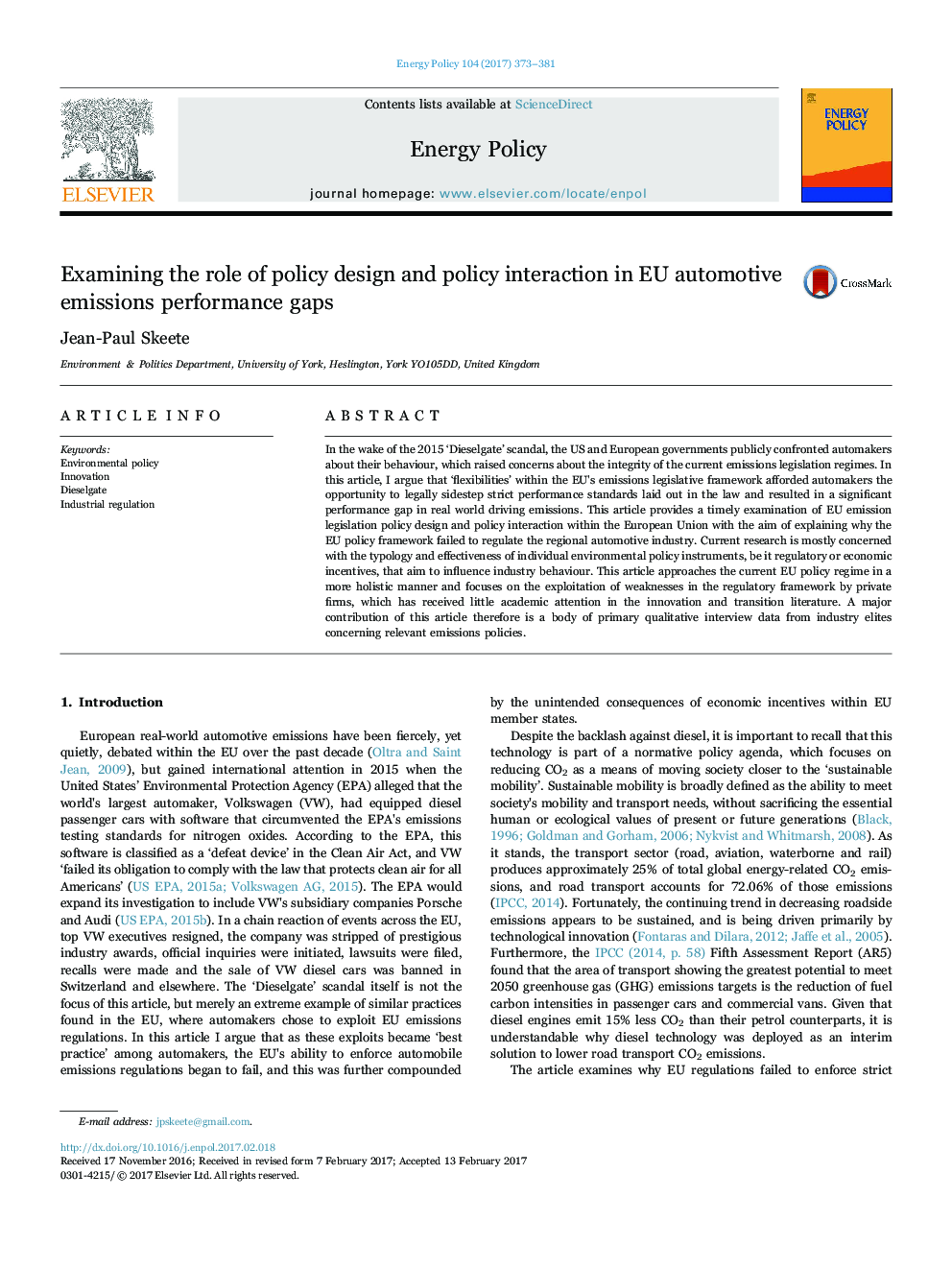| Article ID | Journal | Published Year | Pages | File Type |
|---|---|---|---|---|
| 5106129 | Energy Policy | 2017 | 9 Pages |
Abstract
In the wake of the 2015 'Dieselgate' scandal, the US and European governments publicly confronted automakers about their behaviour, which raised concerns about the integrity of the current emissions legislation regimes. In this article, I argue that 'flexibilities' within the EU's emissions legislative framework afforded automakers the opportunity to legally sidestep strict performance standards laid out in the law and resulted in a significant performance gap in real world driving emissions. This article provides a timely examination of EU emission legislation policy design and policy interaction within the European Union with the aim of explaining why the EU policy framework failed to regulate the regional automotive industry. Current research is mostly concerned with the typology and effectiveness of individual environmental policy instruments, be it regulatory or economic incentives, that aim to influence industry behaviour. This article approaches the current EU policy regime in a more holistic manner and focuses on the exploitation of weaknesses in the regulatory framework by private firms, which has received little academic attention in the innovation and transition literature. A major contribution of this article therefore is a body of primary qualitative interview data from industry elites concerning relevant emissions policies.
Keywords
Related Topics
Physical Sciences and Engineering
Energy
Energy Engineering and Power Technology
Authors
Jean-Paul Skeete,
